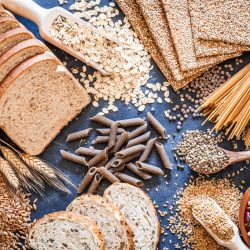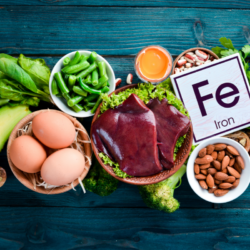Summer is just around the corner. Clothes, environment, climate… Everything changes after the long months spent fighting the cold. And our diet is also affected by this upheaval. In order to change from a rich diet to a lighter, more “measured” diet, a transition is necessary. Our body can then gradually get used to this change. Here are a few tips for making this transition smoothly.
Winter: a high-fat diet… why?
In winter, our bodies need extra fat and carbohydrates. This helps the body to increase and retain body heat. Then, with the shorter days, there is less light. This implies a (slight) increase in stress, anxiety… Which often leads to eating (a lot) more to feel good about ourselves. Finally, the festivities, which follow one another, naturally increase the quantity of calories that we ingest, compared to usual. However, it is possible to eat light and balanced food in winter; it is even recommended. You just have to choose the right foods. Seasonal fruit and vegetables, fatty fish and red meat… You simply have to choose those that provide vitamin C, proteins and omega 3. These elements provide the body with maximum energy, without increasing fat storage.
Summer: a season when you want to eat light
In summer, eating light is the order of the day. This is normal after the calories accumulated during the end-of-year and New Year celebrations in particular. You feel bloated, and the urge to go on a diet comes naturally. However, you shouldn’t think about this right away. A so-called “transitional” diet is in order. A gradual reduction in calories is necessary so that the body and the organism can adapt easily. It is also important here to turn to seasonal fruit and vegetables. In addition, opt for white meat and oily fish. This will allow you to fill up on nutrients, vitamins and proteins, without leaving out the calories. Because, contrary to popular belief, it is better to balance your meals than to risk falling into low-calorie diets. This could weaken our bodies.
The summer change of diet: How to make the transition successfully?
To sum up, the change of diet is a necessary transition between the cold and warm seasons. To ensure that this happens smoothly, remember to “bridge the gap”. In other words, don’t change your habits drastically. The best thing is to gradually change the foods on your plate. Replace the red meat and bacon of winter with white meat and fish. Choose sun-drenched fruit and summer vegetables. These will provide the necessary vitamins and proteins for the body to adapt to the off-season and then to the heat. In addition, don’t hesitate to take food supplements to facilitate the “digestive transition”. Quality products to ensure good digestive hygiene are available on the market for this purpose. Finally, it is imperative to hydrate regularly. This is particularly important during the off-season, which puts our immune system to the test.





